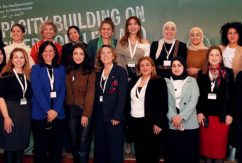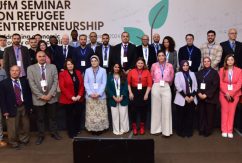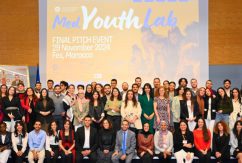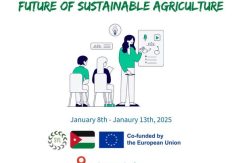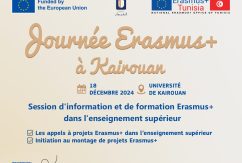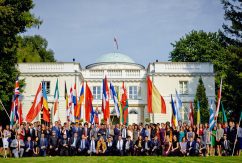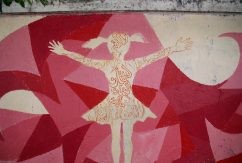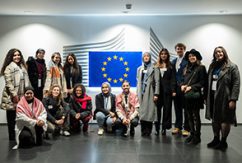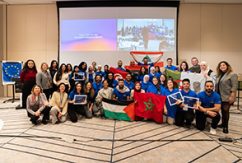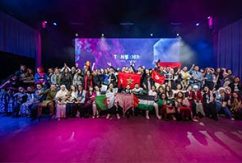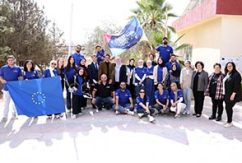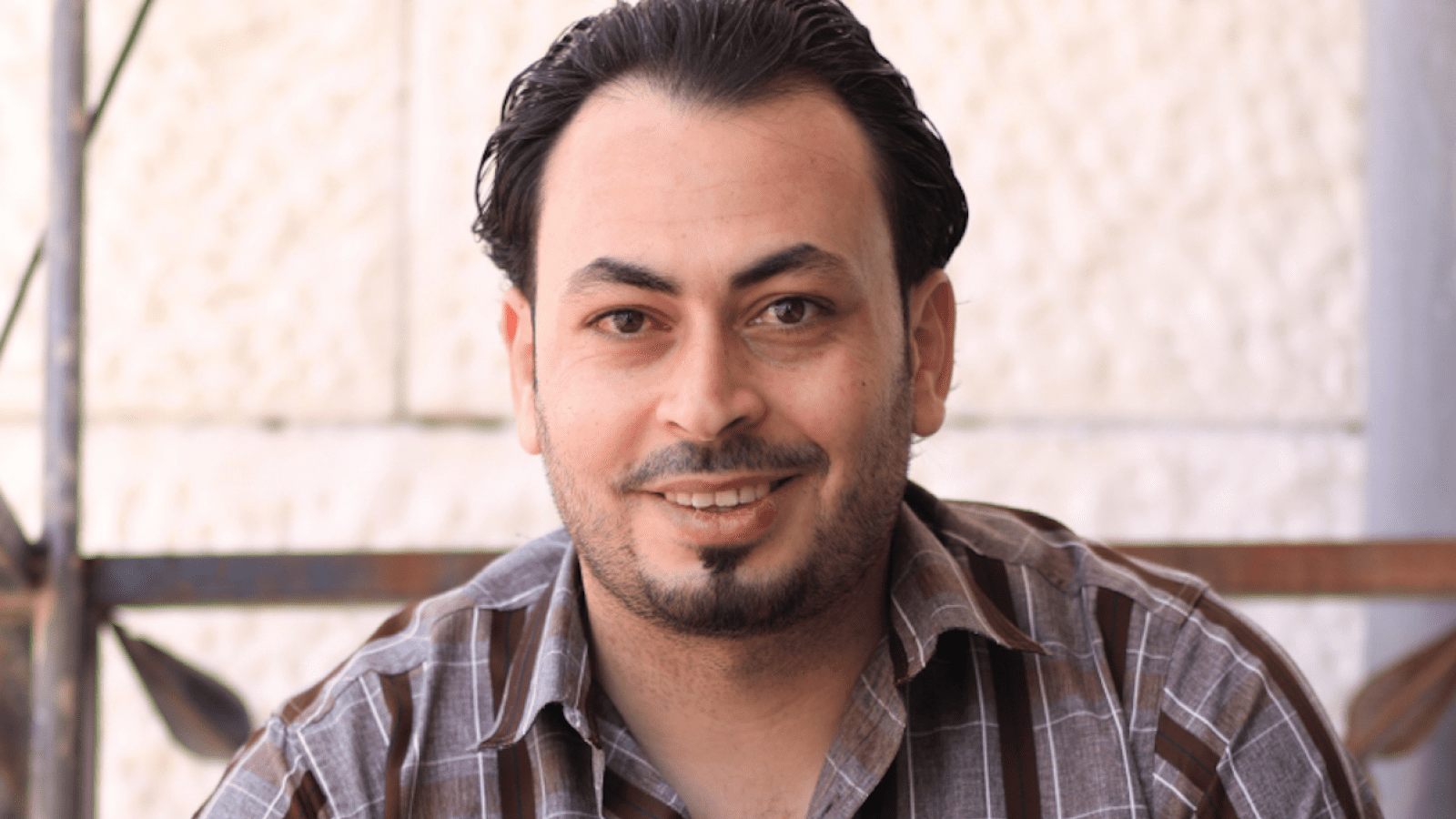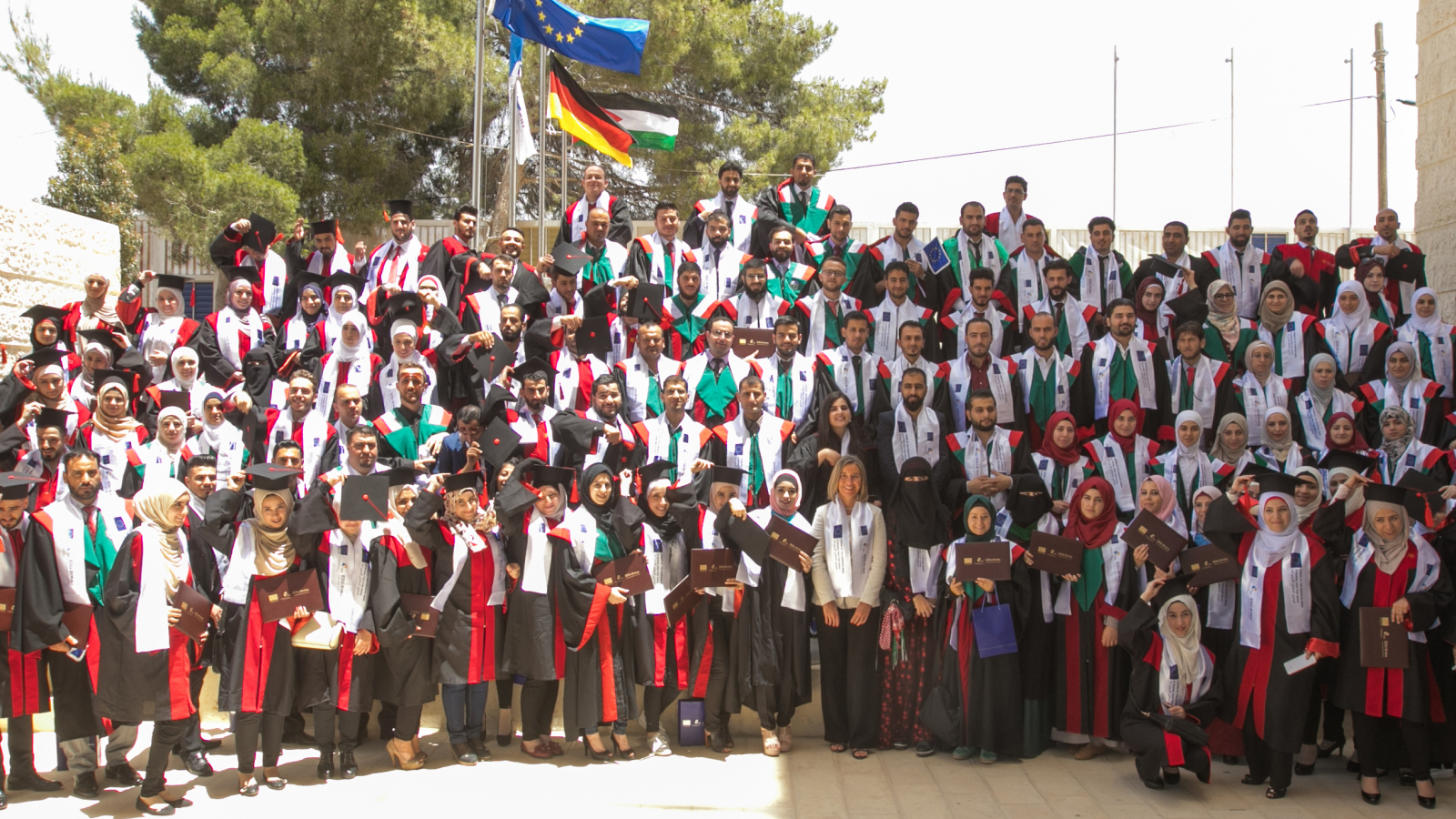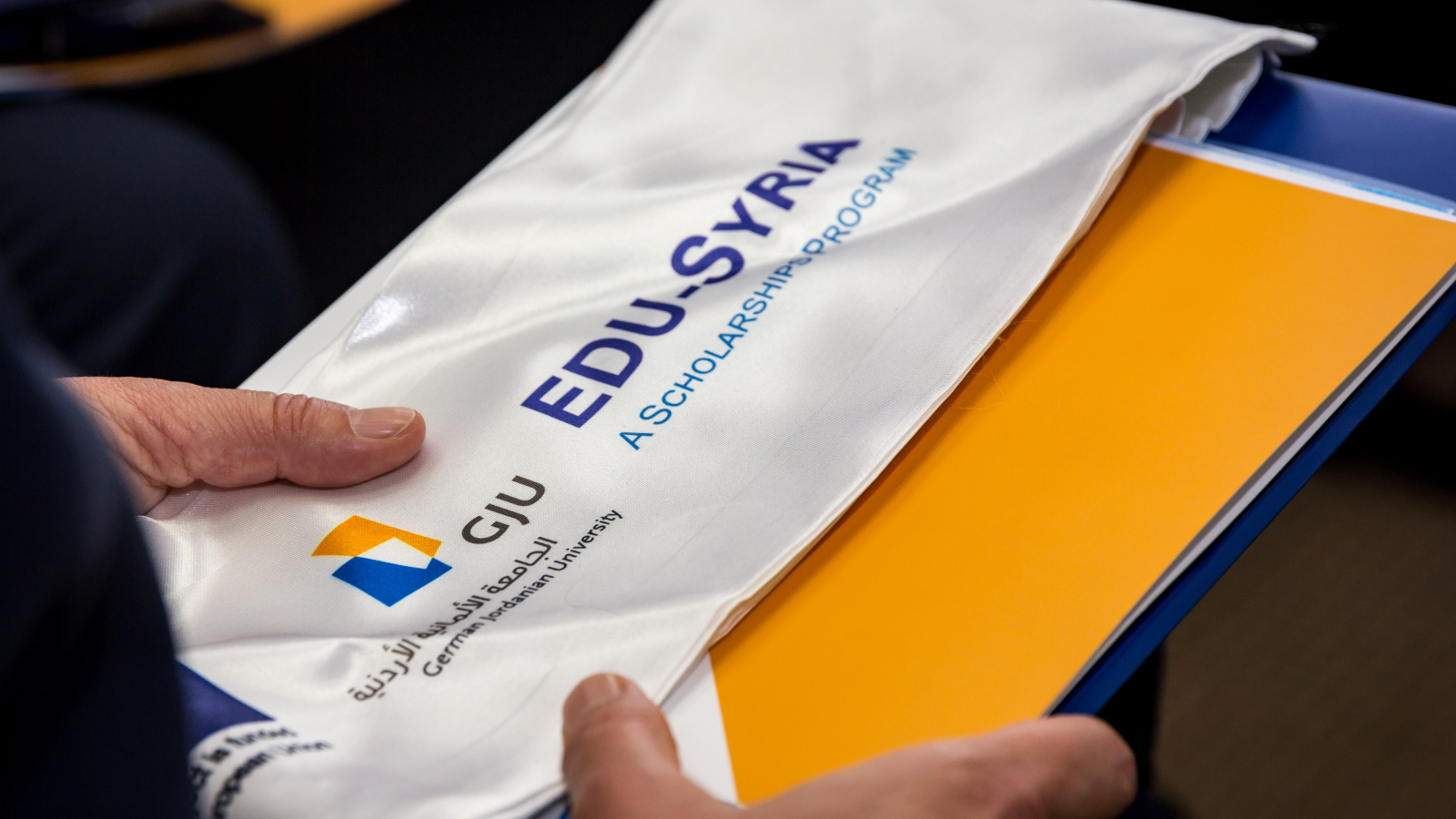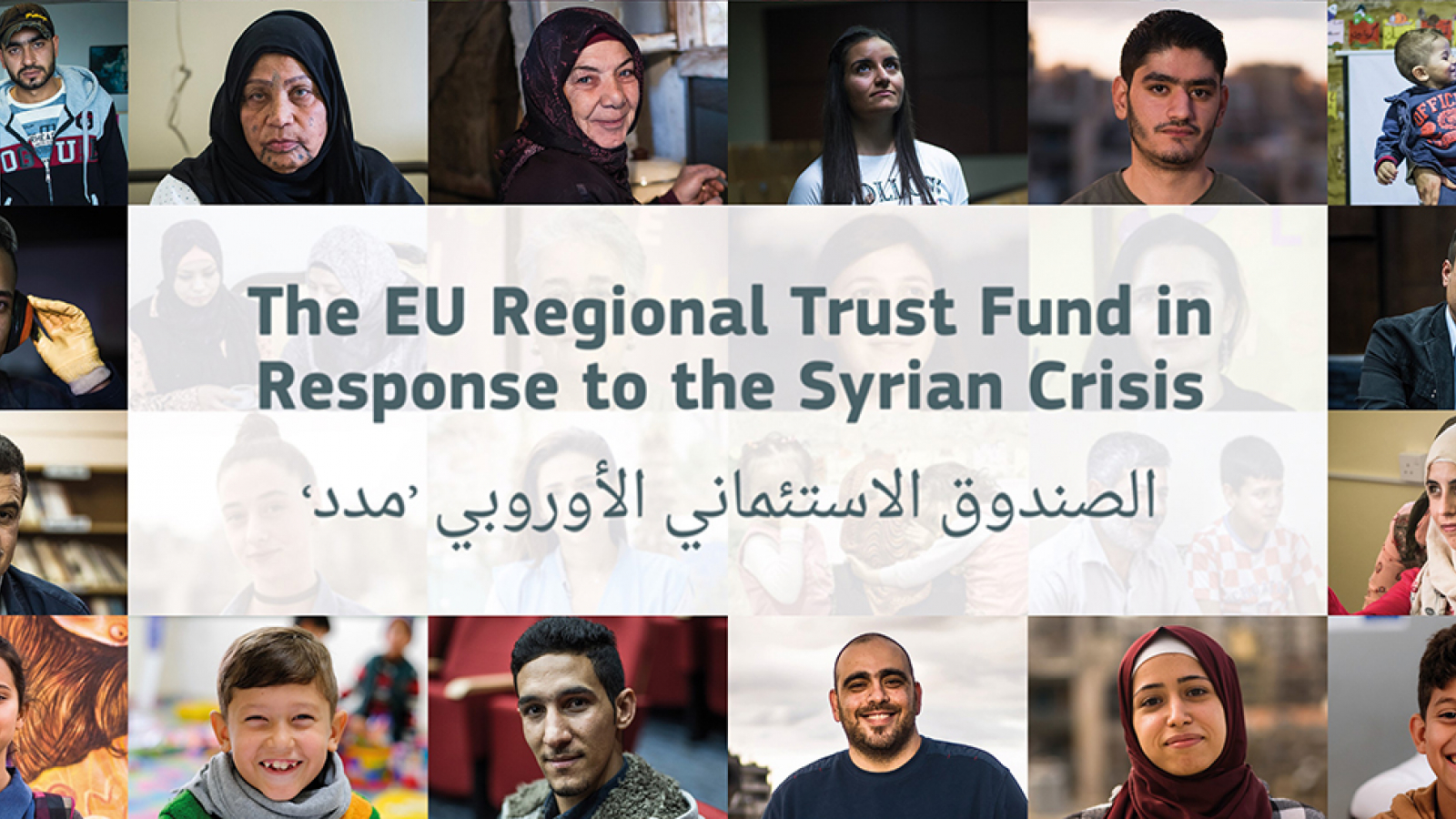Solidarity in the blood: Syrian refugee student triggers change in community
When confronted with daring situations, many people tend to fall into despair, indulging in self-pity over their own hardship. This was not the case for Osama Ahmad, a young Syrian refugee who recently graduated from his bachelor degree in Amman, after fleeing Syria eight years ago. Witnessing the devastating impact of the COVID-19 crisis on his host community, the young student stepped up to help and bring hope and support to those in need.
Dynamic and talkative, Osama Ahmad graduated in 2016 from EDU-SYRIA I, funded by the European Union under the EU Regional Trust Fund in Response to the Syrian Crisis, the EU Madad Fund. He has nothing to envy to the best public and motivational speakers. Yet, instead of choosing the path of fame, the young man decided to make those social skills to altruistic use and enroll in several volunteering initiatives. “Since before university, I would always try to help others. Wherever I found an opportunity to assist, I would seize it and reach out to the people most in need,” the young Syrian refugee reminisces.
Despite his dire situation caused by his escape from Syria in 2012, the young man has been a sparkle of hope and optimism in his host community. An optimism that was put to the test however, when the COVID-19 pandemic reached the outskirt of Amman, where Osama had been living for eight years. “My passion to help was even reinforced so I approached a local NGO to offer my support.” Osama knew that his natural communication skills which benefited him so much in the past could be used to serve his community. “Not only was I sharing the same mother tongue as the people around me – Syrian – but I also have the same cultural background, having lived in Syria most of my life. This gave me an advantage to help fellow refugees.”
The NGO therefore assigned Osama to the most “sensitive” tasks, which included approaching isolated and unregistered Syrian refugee families living in different areas of Jordan. After establishing an initial thread of communication with the families, Osama would gain their trust and be able to educate them in a sensitive and collaborative manner.
“My first focus was to find ways to prevent coronavirus from spreading and keep the pandemic under control,”he recounts, explaining that he taught the various Syrian families about social distancing, the 6-feet rule and the importance of frequent handwashing with soap and water. While basic, a number of rules were still disregarded by the local communities. Osama was adamant to spread knowledge about the “invisible enemy”, ranging from how it spreads, the geographical zones it covers, its medical signs and symptoms, among others. “I explained the importance of avoiding crowded places and the role of face masks and gloves as preventive measures, while also giving them constant updates on the situation and the spread of the virus”. For Osama, it was essential to outline the reasons behind such measures in order for communities to integrate them.
Furthermore, the young man provided the target families with the necessary contact details of the Ministry of Health and Civil Defense Directorate, encouraging them to report any suspicious cases of COVID-19. “I also encouraged them to ask for clarifications, or details they might need to better protect themselves and their communities.” Having become a trusted figure in the local Syrian community, Osama was able to extend the scope of his volunteering work, tackling issues of residency, legal status and financial needs for Syrian families. “I spoke with each family to figure out the residency state of each family member and help them rectify it when needed, either through a referral to professional assistance or through local NGOs I was volunteering with”.
He also wanted to help host communities, who had been so welcoming to him. “I contacted Operation Mercy to offer my ‘expertise’ in educating communities, including through my experience with COVID-19”. This time, Osama reached out to both Syrian and Jordanian families, seeking to build a special database of the underprivileged families in need of financial support. “With this database, we were able to prepare and deliver aid packages including a 70 JD (around EUR 88) cash support for Ramadan, which happened during the pandemic. For me it is crucial to lend a hand to those who are most deprived and disadvantaged, whether they are Syrian refugees or vulnerable Jordanians,” Osama ascertains, insisting that both communities should be supported to allow for “enhanced social cohesion and harmony between the hosted and the host”.
EDU-SYRIA
EDU-SYRIA is a host of projects that chronologically extended over the last five years and still going, 2015 and further. The projects are EU funded via MADAD in response to the Syrian crises. Hence, the primary beneficiaries are Syrian refugee and underprivileged Jordanian youths. The ultimate objective of the projects is to improve the livelihood of those beneficiaries by providing them with higher education opportunities through a cluster of scholarships that are granted every cohort of high school graduate since 2015.
EDU-SYRIA I was launched in late 2015 where a fund of 4 million Euros supported a total of 390 higher education accredited degree, master’s, bachelor’s, and vocational programs. Another EUTF grant was bequeathed, 11 million Euros, inaugurating EDU-SYRIA II, the second wave of the project, October 2016. The project was the largest in Jordan in terms of the number of the higher education degree scholarships that was awarded, specifically, 1000. The EU Regional Trust Fund in Response to the Syrian Crisis program presented a smaller endowment of 2.6 million Euros in January 2019 allowing for additional 200 higher education degree scholarships. EDU-SYRIA III was launched in January 2020 with a fund of 15 million Euros. The components/actions of the last wave were more diversified in nature and design where some aiming to pick up the young adults who dropped out or leaked out of school. The direct total of beneficiaries is 2245 Syrian refugees and underprivileged Jordanians.
EU Regional Trust Fund in Response to the Syrian Crisis
Since its establishment in December 2014, a significant share of the EU’s non-humanitarian aid for Syria’s neighbouring countries is provided through the EU Regional Trust Fund in Response to the Syrian Crisis, the EU ‘Madad’ Fund. The Trust Fund brings a more coherent and integrated EU aid response to the crisis and primarily addresses economic, educational, protection, social, and health needs of refugees from Syria in neighbouring countries such as Jordan, Lebanon, Turkey and Iraq, and supports overstretched local communities and their administrations.
Read more
EU Delegation to Jordan website
EU Regional Trust Fund in Response to the Syrian Crisis website
